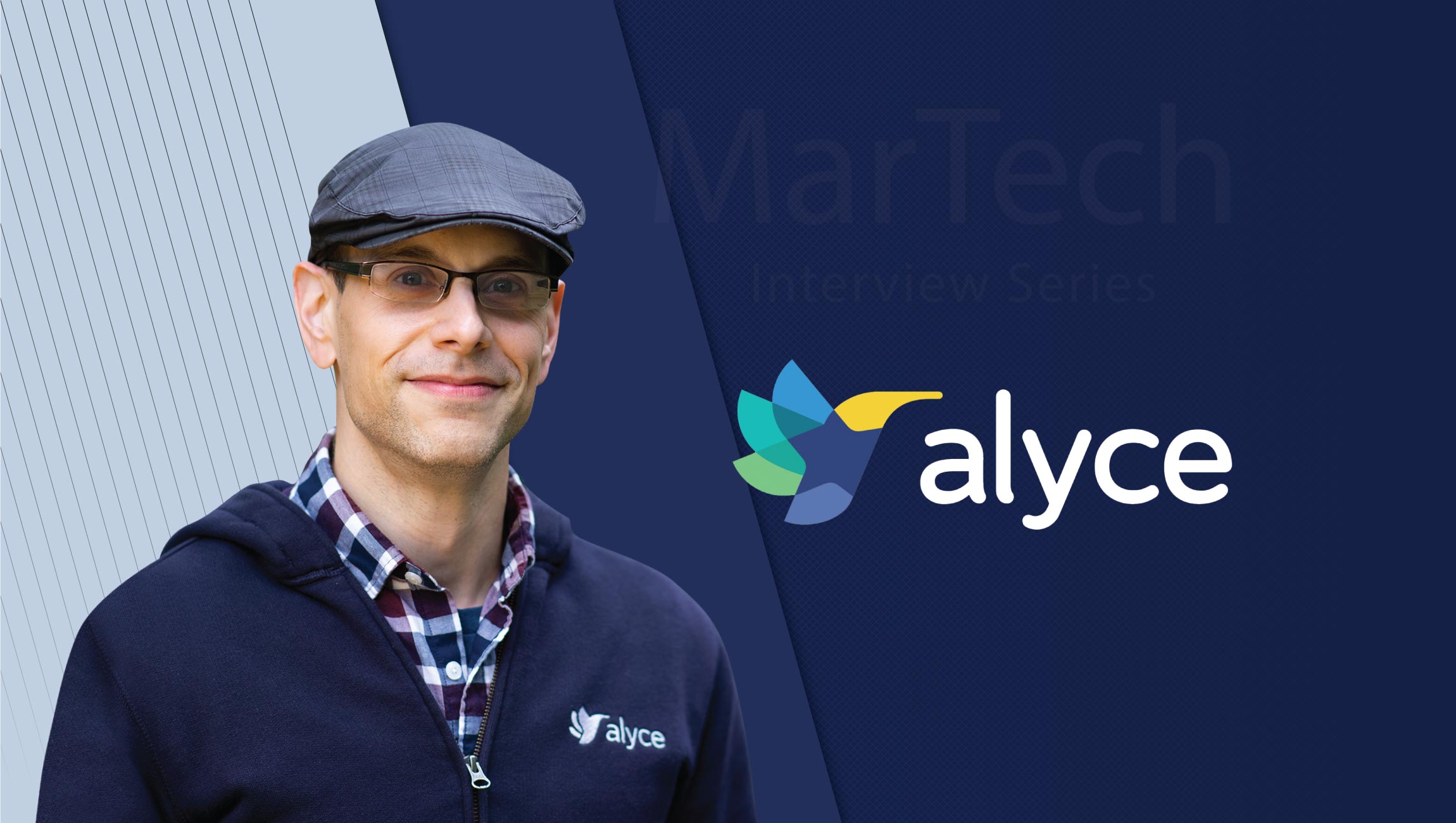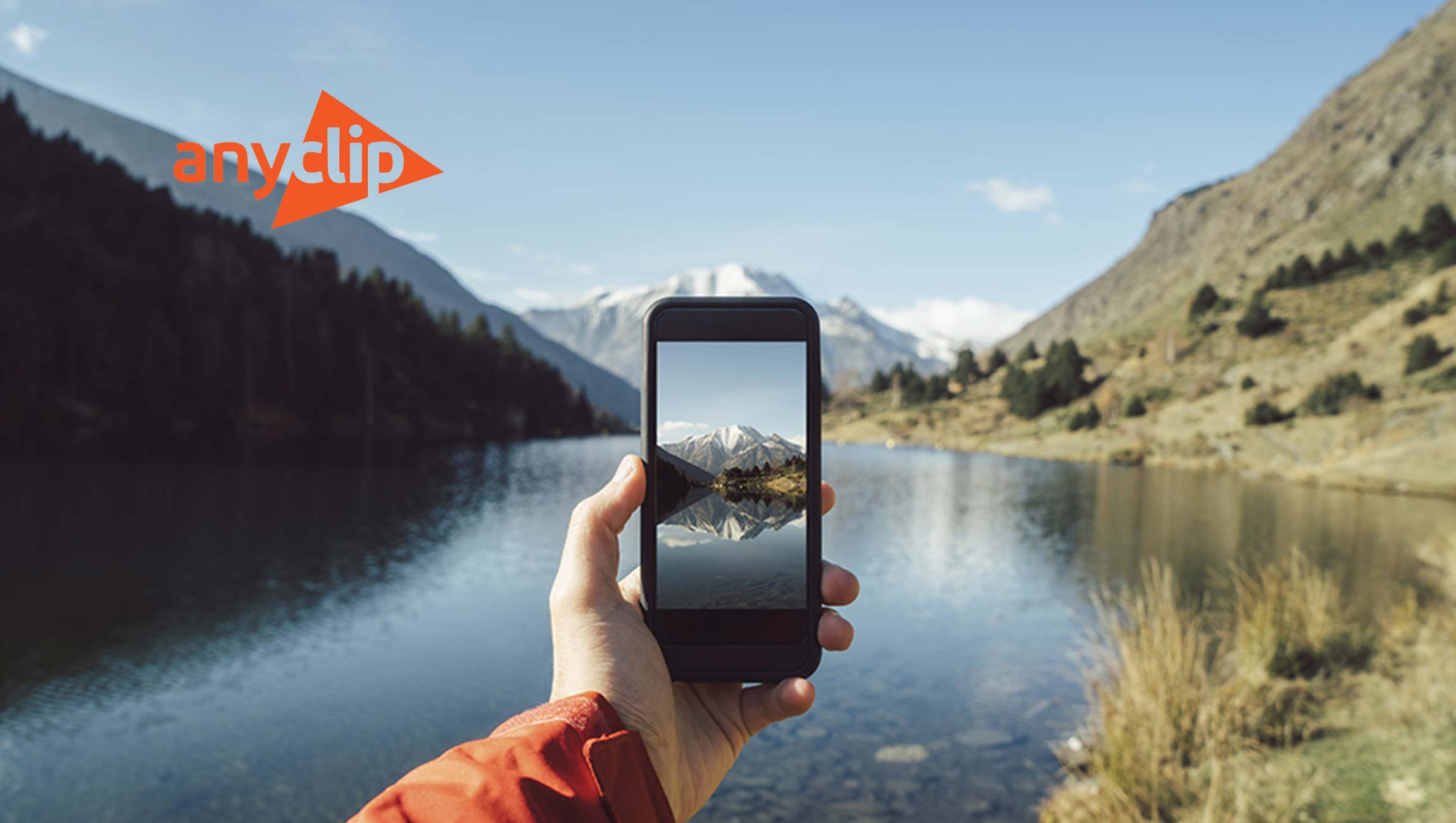“Attribution and showcasing ROI is essential for marketing teams to tangibly measure the ROI from any gifting programs that they have set up.”
[/vc_wp_text]
Greg, please tell us about your career path, what your role is at Alyce and how you bring about exceptional results in your role.
Right out of college, where I majored in design, I started a digital marketing agency called, “One Pica.” Started in 2002, I bootstrapped the company and over the next ten years grew it into one of the country’s largest digital marketing agencies.
I exited One Pica in an acquisition and started Alyce where I am the CEO.
My role is to define the vision, live the culture, scale the team, cheerlead, evangelize, cajole, nudge and find the funding.
My first priority was defining our values and they came from all the lessons learned at One Pica. Be Crafty – make good use of your resources.
Seize the present – make the most of every moment and just, G-S-D.
Unwrap the possibility – challenge yourself and your teammates to achieve greatness and, most importantly, Give First and Give consistently.
Making sure everyone is aligned against the goals and animated by the values is what I spend a lot of time on.
To answer the second part of the question, we get exceptional results by hiring great motivated, passionate, purpose-driven people, prioritizing doing over procrastinating, celebrating our successes together, celebrating our failures together, learning from them and iterating as quickly as possible to make the customers happy.
And we’re super transparent about where we are as a company, what everyone’s role is in making it successful and the greater purpose behind Alyce. It’s working.
Recommended: Alyce Launches Integration With Vidyard, Delivering Customized PX Video Engagement For Prospects And Customers
How does Personal Experience gifting help facilitate sales and marketing teams’ goals in ABM or customer success?
In the course of running, One Pica, we formed lots of tight partnerships with various vendors.
And I began to realize the investment companies were making trying to engage me was really all about them and their needs. It was all trying to solve their problem.
And I thought, ‘aren’t companies supposed to be solving my problem?’
‘Building and earning my trust.’
All the spend on ads, direct mail, events, gifts and campaigns seemed to be wasted. There was too much focus on the sending, and not enough on the giving. The understanding of the needs and interests of the recipient wasn’t even considered. They just weren’t getting to know their targets – as a person.
Sending a physical item is a key moment in prospecting where companies are investing to establish a new relationship – but there wasn’t any attribution system set up to determine the ROI of trust.
So I felt the whole process was failing because the approach was directed in the wrong way. Playing a numbers game with impersonal, generic “sends”.
And worse, there was just so much waste – I looked it up, nearly 90% of direct mail, gifts, etc. are thrown out or passed along, because people are being sent things they don’t want – that aren’t relatable to them.
The straw that broke the camel’s back, so to speak, was when I received a branded jacket from a close partner filled with a box of chocolates.
Now, if you know me at all, you’d know I take my health and fitness very seriously, and never eat chocolates. Plus, the jacket didn’t fit. It was way too large, and actually smeared with the chocolate, since it had melted while the package sat in my office over a weekend.
So that was it. I’d had enough and decided it was time to create something new and reimagine a new approach to marketing and sales engagement.
We embarked on a mission of helping everyone create personal bonds with everyone they do business with by appealing to their true passions, hobbies, and their real interests. We call it their #5to9 and it’s what fuels their life – which is the core of how you make real connections, and build meaningful relationships.
Sales don’t happen without rapport and trust, especially now.
And that’s not built by email cadences or paid ads.
They’re built by a mutual understanding and respect on both sides. And personal gifting helps to facilitate that.
While Personal Experience Gifting creates attention, and progression for your revenue funnel it’s mostly about driving action. Sending someone something they don’t want gets you attention. Just not the good kind.
What are the best practices for setting up an effective gifting program?
Like most marketing programs it really depends on your particular use case and what problem you are trying to solve. Generally we recommend that companies start by creating a list of their Tier 1 Accounts or ICPs.
Then they should identify the buying team within each ICP. When investing in a new relationship using Personal Experience, you want to ensure that you’re creating bonds with the right person at the companies you’re engaging, at the right time.
Then when you’re inviting a prospect to engage via an experience invitation, make sure to include a personal note that is relatable to their #5to9 interests. #5to9 interests being what they’re passionate about outside the office. Who that person is, not which persona they fall into. Keep your messaging about them, not about you.
This buyer’s-first approach tends to engender reciprocity and illicit action. Building rapport, earning trust starts with gifting but includes all the subsequent interactions you’ll have with your buyers.
And lastly, giving your recipients the power of choice matters. By allowing them to accept, exchange, or donate the dollar value of the gift, you’re learning more about your prospects and customers, helping better understand the person, and building an even stronger relationship based on trust and respect. That’s why we send gift invitations first, not the gift itself.
The really successful gifting programs happen when customers view Alyce as an approach, not as a campaign tool, where Personal Experience (PX) driven moments change the nature of the relationship itself.
And yes, the business results follow. Many of our enterprise customers are doubling down with the Alyce PX approach, recognizing that as the world goes more digital, creating personal bonds is needed more than ever before.
And some prospects may not be ready to buy today – however the bonds and relationships created today will turn into stronger sales opportunities later in 2020 and into next year.
What kind of data do you require into your prospects to get started? What are the sources of the data and how do you ensure this data is ethically sourced and complies with GDPR and CCPA?
This is a really interesting question and one that we get often with customers early in the relationship.
The way we see it, being a good steward of customer data is just good business.
All we require from our customers to provide is the name and email address of the person they want to engage with a gift, and then our AI can find the rest of the information in public databases like social media. Our human augmented AI makes sure that we only find information that’s relevant to the person.
Alyce is currently a data processing platform, so we don’t control any of the core data. We have our own dataset that we use ourselves to optimize experience and engagement, but our customers do not have visibility and access to much of that data and do everything to protect that, especially being so Enterprise-focused.
And today, we’ve readily adapted to allow recipients to opt-in to have selected gifts shipped to any address of their choice. We do have address validation but that information never leaves the Alyce platform and is never sold. It’s just used for shipping purposes once the recipient has claimed the gift they want to receive.
GDPR and CCPA has provided a great opportunity to engage clients around best practices for opt-in sales and marketing. While some companies viewed data protection as a checkbox initiative and sending new privacy updates via blast email, we think it’s important to take the time to engage customers and key partners about business needs, system updates, and new opportunities.
How can marketers tangibly measure the ROI from any gifting programs that they have set up?
Attribution and showcasing ROI is essential.
We have direct integrations with MAP systems and Salesforce, with immediate plans for others, not to mention expanding the built in reporting in the Alyce platform itself.
Because of our model, allowing gift recipients to digitally see their gift before they physically receive it, we have actionable tracking for our customers for every stage of the gift journey. That way they can track and measure the activities each recipient is taking at each part of the customer journey.
For the first time you can really measure the impact of your gifting throughout the entire lifecycle of your customers and buyers journey, at many stages of interaction.
Measuring pipeline contributions, opportunities created, and ROI generated is something that has really never been done before with traditional direct mail, gifting or swag programs to this level before.
And now it’s something you can measure and report on in real-time.
What are the characteristics of a ‘personal marketer’?
That’s a great question.
I’d say a personal marketer is someone who wholeheartedly embraces the approach of being relatable, relevant and respectful every time they interact with their prospects, customers and partners.
They make an effort to change their one-to-many ‘touches’ to one-to-one ‘moments’ throughout the customer journey.
When a marketer understands that marketing has two functions, brand awareness and building relationships and affinity with your product, and they understand that building those relationships on a one-to-one basis helps actually strengthen the brand awareness, then they’re a personal marketer.
In 2020, how should marketers approach concepts such as personas, target audience and personalization?
I would say that personas still have a place in the world. It’s important for every company, marketer, and salesperson to understand the role and responsibilities of their target buyers.
We should still be using demographics and intent data to create target audiences and understand where they are in their buying cycle. Their 9-to-5 business needs. And we should identify ICPs and buyers within those ICPs in order to sell our products and services.
Personalization on the other hand is a different story. It’s about data and driving someone through the buyer’s journey. It attempts to ‘know’ the buyer, but is still highly one-to-many, though it’s striving to be one-to-one. While it does have value to help move a prospect through a sales engagement funnel, it really has nothing to do with you. The real you.
Being personal is about individuals, building rapport, earning trust forming bonds based on shared interests. Personal experience is about emotional resonance and being empathetic, authentic and bonding.
It’s different and more powerful.
Which are the top 3 tactics marketers can look at to drive personal experience at scale?
I think alignment between marketing and sales can help facilitate a lot of things, including keeping a focus on creating those personal relationships.
I would say the Top Three tactics marketers can look at should be:
- Start talking to the people you’re marketing to as humans, not as buyers.
People, not targets. Individuals, not demographics. No one wants to be treated as a KPI or a metric, they want to be treated like a person. - Make a mindset shift to stop thinking about the quantity of people you’re targeting with your outreach, and start thinking about the quality of your outreach. All marketers and sales reps should think about the people on the other side of the market and be relatable, relevant, and respectful.
- Leverage research and technology that allows you to better understand the dynamics, interests, and needs of the person on the other end of your outreach. Use a platform that lets you understand and appeal to the #5to9 interests, passions and work of the other person to incorporate PX through as many use cases and customer engagement moments.
What does 2020 have in store for driving personal and personalized customer experiences?
As mentioned earlier, “personal” is not the same as “personalized”.
Starting with “personalized” – The cleaner and more depth of your data, the better and deeper the personalization campaigns. It is still one-to-many, and therefore limited in its overall effectiveness of bonding emotionally with someone.
The really big opportunity right now is with Personal Experience (PX).
Personal experience is all about bonding with buyers through a series of engaging one-to-one moments, along the customer’s journey and creating emotional resonance.
While we’re talking about creating a one-to-one experience for customers, notice that we don’t talk about marketing touches. There’s a difference between marketing and sales “touches” and “moments”.
A moment is something shared between people, that imports emotional heft. An invitation to connect. “Touches” are not. As marketers and sales professionals, would you rather generate “touch” or create a moment?
Technology should be used for good: to scale the quality of your outreach so everyone can always be personal.
Thank you, Greg! That was fun and hope to see you back on MarTech Series soon.
A serial entrepreneur, Greg Segall founded his third company, Alyce in December 2015 with the goal to fundamentally change the way people invest in business relationships using corporate gifting, swag and more. The mission is to help everyone create personal bonds with everyone they do business with.
Each “investable” moment create by Alyce is built on the 3 pillars of giving:
– How to create an experience that can authentically bring people closer together
– How to give back to planet
– How to give to those in need
Prior to Alyce, Greg was the former founder and CEO One Pica, a premier global e-commerce agency, where Greg worked some of the largest commerce and supply chain infrastructures in the world, including 3M and Scholastic.
Alyce is a Personal Experience (PX) platform that helps sales, marketing, and customer success teams create personal bonds with everyone they do business with through one-to-one gifting. Alyce bridges the physical and digital marketing worlds to help enterprises better engage prospects, customers, and employees while delivering measurable results.













Comments are closed.